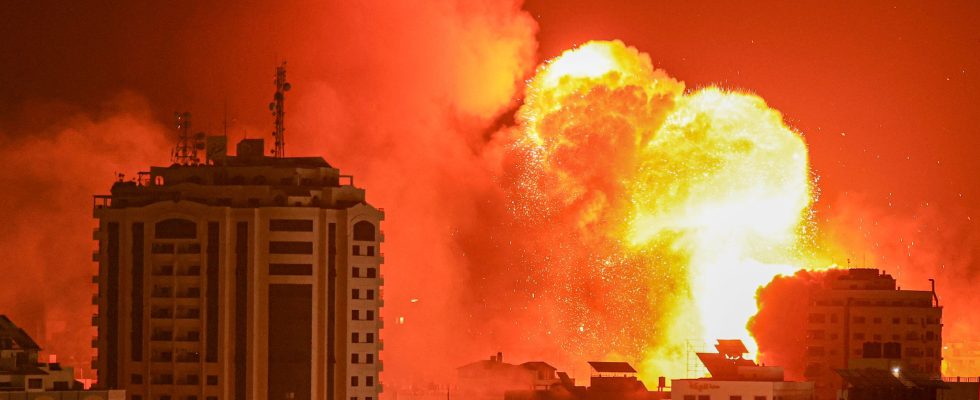Focused on his strategic rivalry with China, Joe Biden did not hide, at the start of his mandate, his intention to disengage from the Middle East, and from an Israeli-Palestinian conflict which seemed insoluble to him. Despite his support for the Jewish state, the American president kept his distance from the very right-wing Benjamin Netanyahu – who had benefited from the unconditional support of his friend Donald Trump -: he never invited him to the House -White.
And now Hamas’ bloody attack on Israel is brutally forcing the democratic leader to get involved in this issue much more than he would have liked. Promising “rock-solid” aid, Biden sent the aircraft carrier USS Gerald Ford, the world’s largest warship to the eastern Mediterranean, capable of carrying 4,600 troops and 75 helicopters and fighter jets. Objective: to dissuade Hezbollah from launching an offensive against the north of the Hebrew state.
Recently, Washington’s strategy had evolved: it was a matter of securing stability in the Middle East (to also be able to counter Russia in its war in Ukraine). The United States was pushing for a normalization of relations between Israel and Saudi Arabia, in continuity with the Abraham Accords signed from 2020 with Morocco, the United Arab Emirates, Bahrain and Sudan – which relegated the issue Palestinian in the background.
Riyadh must take public opinion into account
The surge in terrorist violence puts a stop to this plan. In addition to its internal political motivations, “Hamas’ general strategy is to create a conflagration in the region, in order to torpedo the ongoing rapprochement between Israel and the Sunni Arab states”, explains Frédérique Schillo, researcher at the French Research Center, at Jerusalem. “There is a common interest between Hamas and its sponsor, Iran, which fears the development of a new axis between Israel, the West and Saudi Arabia which would weaken it at the regional level,” adds Firas Maksad, researcher at the Middle East Institute in Washington.
Riyadh, “which aimed for security guarantees from the United States, as well as access to a civil nuclear program, is currently walking on a tightrope, because it must take into account its public opinion and that of the Arab world”, continues this expert. Saudi Arabia thus accused “the Israeli occupying forces” of being at the origin of “an explosive situation”.
The attitude of the international community will depend on the extent of the IDF’s retaliation against Hamas in the Gaza Strip. “Israel will undoubtedly have the support of the Americans, but it is possible that the reservoir of international legitimacy will be empty or almost empty in two weeks,” comments Kobi Michael, specialist in defense issues at the Institute for National Security Studies, to Tel -Aviv.
